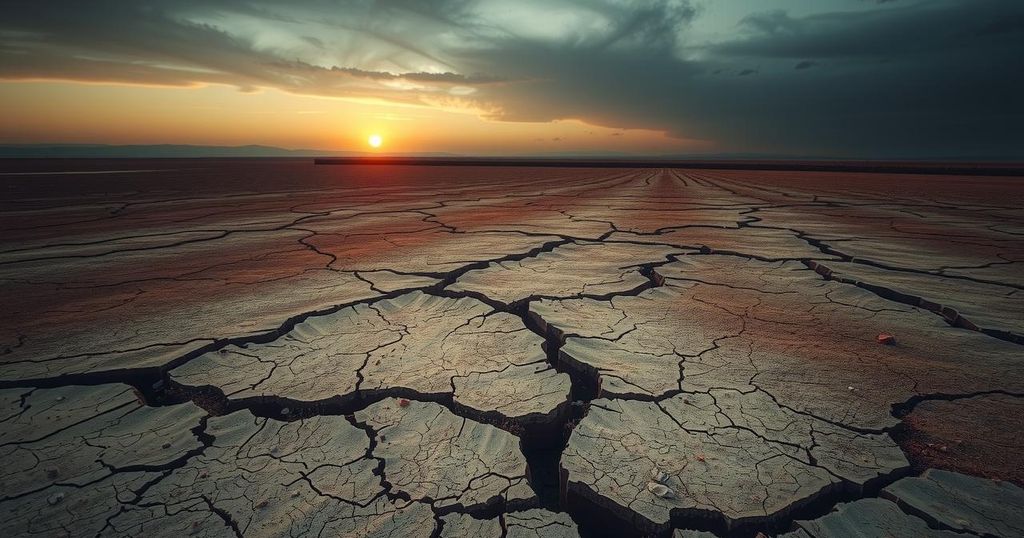UN Warns of Escalating Violence and Human Rights Crisis in DRC Without Action

The UN human rights chief has warned that escalating violence in eastern DRC, fueled by the Rwanda-backed M23 group, could worsen without international intervention. The conflict has resulted in thousands of deaths and severe humanitarian crises, the continuation of which poses risks not just to the DRC but to the wider region. Calls for urgent action and investigations into human rights violations are paramount as the situation remains dire.
The UN human rights chief, Volker Türk, expressed grave concerns over the escalating violence in eastern Democratic Republic of the Congo (DRC), particularly due to the Rwanda-backed M23 group. He warned that without international intervention, conditions may deteriorate further, impacting not just the DRC but potentially extending beyond its borders. Since January 26, attacks have resulted in nearly 3,000 fatalities and thousands of injuries, as fighting has intensified between M23 and DRC forces.
Reports detailed extreme human rights violations in North and South Kivu, including the bombing of hospitals and sexual violence amidst the chaos. A draft resolution discussed at a recent Human Rights Council session condemned Rwanda’s military support for the M23 and urged for immediate humanitarian aid access. In addition, significant displacements of people due to the violence reflect the ongoing instability in this mineral-rich region.
Bintou Keita, the Special Representative of the Secretary-General in the DRC, painted a dire picture from Goma, where M23 militants have claimed control. She highlighted severe human rights abuses, including forced recruitment of youth and an alarming rise in violence against women and children. Reports indicate that vital medical services are lacking due to power outages and fuel shortages, exacerbating health issues such as cholera.
The DRC Minister of Communications condemned Rwanda’s ongoing support for armed groups, arguing it has fueled violence for over three decades, primarily driven by resource exploitation. Conversely, Rwanda’s ambassador to the UN dismissed these claims, alleging a looming attack on Rwanda from coalition forces in Kinshasa. He mentioned concerns about armed stockpiling near the Rwandan border, indicating heightened tensions.
Mr. Türk underscored the necessity for nuanced understanding of the political and economic factors at play. He noted that the population in eastern DRC endures significant suffering, often unnoticed, while global consumption of minerals from the region perpetuates the cycle of violence, illustrating that many share responsibility for the crisis.
The Democratic Republic of the Congo has faced decades of conflict, particularly in the eastern regions of North and South Kivu. This violence has often been exacerbated by the involvement of neighboring countries, notably Rwanda. The M23 rebellion, which has received backing from Rwanda, has contributed to severe humanitarian crises, resulting in mass displacements, loss of life, and violations of human rights. The international community has been urged to take proactive measures to address these issues and provide necessary humanitarian aid. Human rights violations have been rampant, including targeted attacks on civilians, sexual violence, and forced recruitments. This situation has drawn the attention of international organizations, emphasizing the urgent need for investigations and humanitarian interventions. The mineral wealth of the region plays a crucial role in the conflict, with global demand for resources often linked to ongoing instability and violence.
The ongoing crisis in the DRC underscores a complex interplay of violence, international interests, and humanitarian challenges. UN officials have called for immediate action to address human rights violations and provide aid to affected populations. As the situation continues to evolve, international engagement is critical to mitigate further deterioration and address the root causes of the conflict. The DRC’s struggles are emblematic of broader issues involving resource exploitation, regional politics, and human rights accountability.
Original Source: news.un.org








